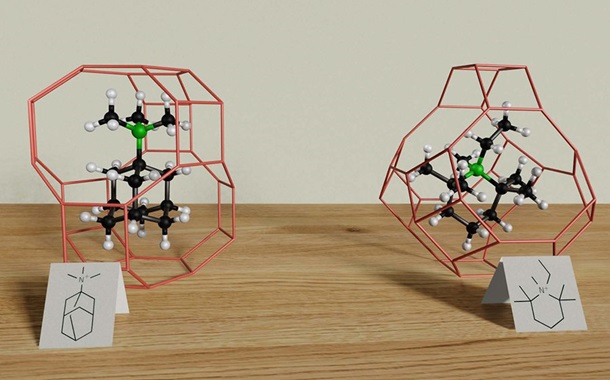Evaluation of Hybrid Learning in the University: A Case Study Approach
Downloads
Doi:10.28991/HIJ-2022-03-04-03
Full Text:PDF
Downloads
Idrizi, E., Filiposka, S., & Trajkovijk, V. (2021). Analysis of success indicators in online learning. International Review of Research in Open and Distributed Learning, 22(2), 205-223. doi:10.19173/irrodl.v22i2.5243.
Daniel Hermawan. (2021). The Rise of E-Learning in COVID-19 Pandemic in Private University: Challenges and Opportunities. IJORER : International Journal of Recent Educational Research, 2(1), 86–95. doi:10.46245/ijorer.v2i1.77.
Rorimpandey, W. H. ., & Midun, H. (2021). Effect of Hybrid Learning Strategy and Self-Efficacy on Learning Outcomes. Journal of Hunan University Natural Sciences, 48(8), 181–189.
Aristika, A., Darhim, Juandi, D., & Kusnandi. (2021). The effectiveness of hybrid learning in improving of teacher-student relationship in terms of learning motivation. Emerging Science Journal, 5(4), 443–456. doi:10.28991/esj-2021-01288.
Singh, J., Steele, K., & Singh, L. (2021). Combining the Best of Online and Face-to-Face Learning: Hybrid and Blended Learning Approach for COVID-19, Post Vaccine, & Post-Pandemic World. Journal of Educational Technology Systems, 50(2), 140–171. doi:10.1177/00472395211047865.
Lestari, Syafril, S., Latifah, S., Engkizar, E., Damri, D., Asril, Z., & Yaumas, N. E. (2021). Hybrid learning on problem-solving abiities in physics learning: A literature review. Journal of Physics: Conference Series, 1796(1), 012021. doi:10.1088/1742-6596/1796/1/01202.
Rahmawati, R. D., Sugiman, S., Nur Wangid, M., & Eko Atmojo, S. (2022). The effect of motivation and self-efficacy against mathematics learning achievement in hybrid learning. World Journal on Educational Technology: Current Issues, 14(6), 1978–1990. doi:10.18844/wjet.v14i6.7795.
Athota, R. K., & Sumathi, D. (2022). Human activity recognition based on hybrid learning algorithm for wearable sensor data. Measurement: Sensors, 24, 1–14,. doi:10.1016/j.measen.2022.100512.
Hasnine, M. N., Ueda, H., & Ahmed, M. M. H. (2022). Adaptation of AL-TST active learning model in hybrid classroom: Findings from teaching during COVID-19 pandemic in Egypt. Procedia Computer Science, 207, 3226–3233. doi:10.1016/j.procs.2022.09.380.
Bedair, S., Sayed, S. A., & AlMetwaly, W. M. (2022). Enhancing Hybrid Learning using Open Source GIS-Based Maps Archiving System. Egyptian Journal of Remote Sensing and Space Science, 25(3), 779–793. doi:10.1016/j.ejrs.2022.07.003.
Dakir, D., & Fauzi, A. (2022). Hybrid learning effectiveness in Learning Management during the Covid-19 pandemic. Cypriot Journal of Educational Sciences, 17(11), 3924–3936. doi:10.18844/cjes.v17i11.7700.
Xie, G. (2022). Evaluation of the Effectiveness of Hybrid Learning Activities Based on a Learning Community Network. International Journal of Emerging Technologies in Learning (IJET), 17(21), 246–260. doi:10.3991/ijet.v17i21.35111.
Ploj-Virtič, M., Dolenc, K., & Š orgo, A. (2021). Changes in Online Distance Learning Behaviour of University Students during the Coronavirus Disease 2019 Outbreak, and development of the Model of Forced Distance Online Learning Preferences. European Journal of Educational Research, 10(1), 393–411. doi:10.12973/eu-jer.10.1.393.
Alfiras, M., Nagi, M., Bojiah, J., & Sherwani, M. (2021). Students' perceptions of hybrid classes in the context of Gulf University: An analytical study. Journal of Hunan University Natural Sciences, 48(5), 180-188.
Lu, D. (2021). Students' Perceptions of a Blended Learning Environment to Promote Critical Thinking. Frontiers in Psychology, 12, 1–9,. doi:10.3389/fpsyg.2021.696845.
Natale, C. C., Mello, P. S., Trivelato, S. L. F., Marzin-Janvier, P., & Manzoni-De-Almeida, D. (2021). Evidence of scientific literacy through hybrid and online biology inquiry-based learning activities. Higher Learning Research Communications, 11, 33–49. doi:10.18870/HLRC.V11I0.1199.
Rodrigo, R. T., & Platon, L. H. (2022). Hybrid learning for the digital natives: Impacts on academic performance and learning approaches. Kasetsart Journal of Social Sciences, 43(1), 201–208. doi:10.34044/j.kjss.2022.43.1.27.
Abi Raad, M. E., & Odhabi, Hamad. (2021). Hybrid Learning Here to Stay! Frontiers in Education Technology, 4(2), p121. doi:10.22158/fet.v4n2p121.
Umiyati, M. (2022). Hybrid Learning Model in Learning English (Effectiveness & Advantages). International Linguistics and TESOL Journal, 1(1), 5-9.
Alsowat, H. H. (2022). Hybrid Learning or Virtual Learning? Effects on Students' Essay Writing and Digital Literacy. Journal of Language Teaching and Research, 13(4), 872–883. doi:10.17507/jltr.1304.20.
Kazu, I. Y., & Yalçin, C. K. (2022). Investigation of the Effectiveness of Hybrid Learning on Academic Achievement: A Meta-Analysis Study. International Journal of Progressive Education, 18(1), 249-265.
Ranadewa, D. U. N., Gregory, T. Y., Boralugoda, D. N., Silva, J. A. H. T., & Jayasuriya, N. A. (2021). Learners' Satisfaction and Commitment towards Online Learning during COVID-19: A Concept Paper. Vision: The Journal of Business Perspective, 097226292110567. doi:10.1177/09722629211056705.
Prihadi, S., Sajidan, S., Siswandari, S., & Sugiyanto, S. (2021). The Challenges of Application of the Hybrid Learning Model in Geography Learning During the Covid-19 Pandemic. GeoEco, 8(1), 1. doi:10.20961/ge.v8i1.52205.
Sumandiyar, A., Husain, M. N., Sumule G, M., Nanda, I., & Fachruddin, S. (2021). The effectiveness of hybrid learning as instructional media amid the COVID-19 pandemic. Jurnal Studi Komunikasi (Indonesian Journal of Communications Studies), 5(3), 651–664. doi:10.25139/jsk.v5i3.3850.
Thamrin, T., Saidun Hutasuhut, Aditia, R., & Putri, F. R. (2022). The Effectiveness of the Hybrid Learning Materials with the Application of Problem Based Learning Model (Hybryd-PBL) to Improve Learning Outcomes during the COVID-19 Pandemic. IJORER : International Journal of Recent Educational Research, 3(1), 124–134. doi:10.46245/ijorer.v3i1.178.
Hidalgo-Camacho, C., Isabel, G., Villacís, W., & Varela, K. (2021). The Effects of Online Learning on EFL Students' Academic Achievement during Coronavirus Disease Pandemic. European Journal of Educational Research, 10(4), 1867–1879. doi:10.12973/eu-jer.10.4.1867.
Sukiman, Haningsih, S., & Rohmi, P. (2022). The pattern of hybrid learning to maintain learning effectiveness at the higher education level post-COVID-19 pandemic. European Journal of Educational Research, 11(1), 243–257. doi:10.12973/eu-jer.11.1.243.
Erliza, S., & Septianingsih, P. A. (2022). Undergraduate Students' Perception of Hybrid Learning: Voices from English Language Education Students in Pandemic Era. Journal of English Language Teaching and Linguistics, 7(1), 231. doi:10.21462/jeltl.v7i1.782.
Eduljee, N. B., Chakravarty, R., Croteau, K., & Murphy, L. (2022). Understanding Research Trends in HyFlex (hybrid flexible) Instruction Model: A Scientometric Approach. International Journal of Instruction, 15(4), 935–954. doi:10.29333/iji.2022.15450a.
Demazière, C. (2021). Using Active Learning in Hybrid Learning Environments. EPJ Web of Conferences, 247, 14001. doi:10.1051/epjconf/202124714001.
Adeyeye, B., Ojih, S. E., Bello, D., Adesina, E., Yartey, D., Ben-Enukora, C., & Adeyeye, Q. (2022). Online learning platforms and Covenant University students' academic performance in practical related courses during COVID-19 pandemic. Sustainability, 14(2), 878. doi:10.3390/su14020878.
- This work (including HTML and PDF Files) is licensed under a Creative Commons Attribution 4.0 International License.





















